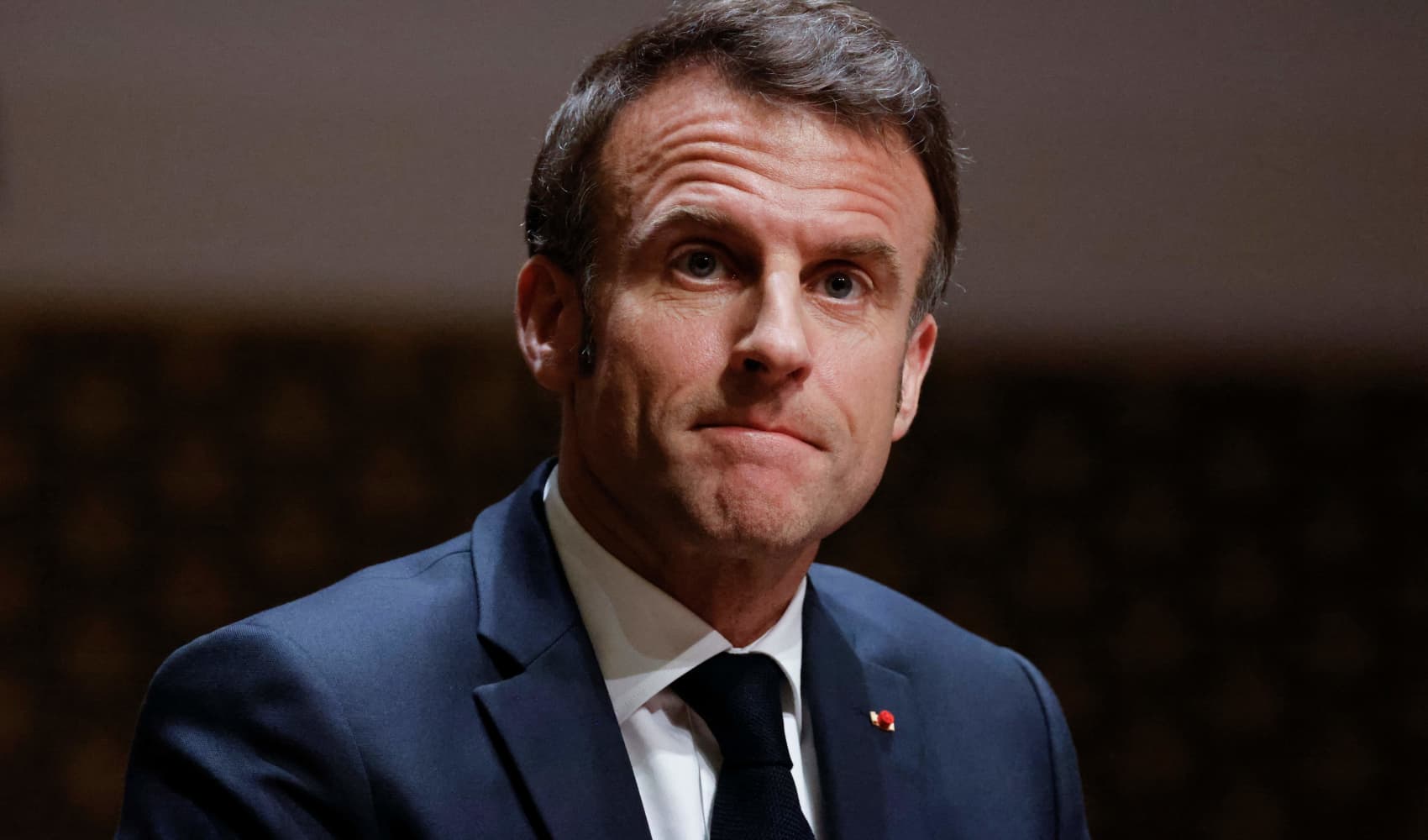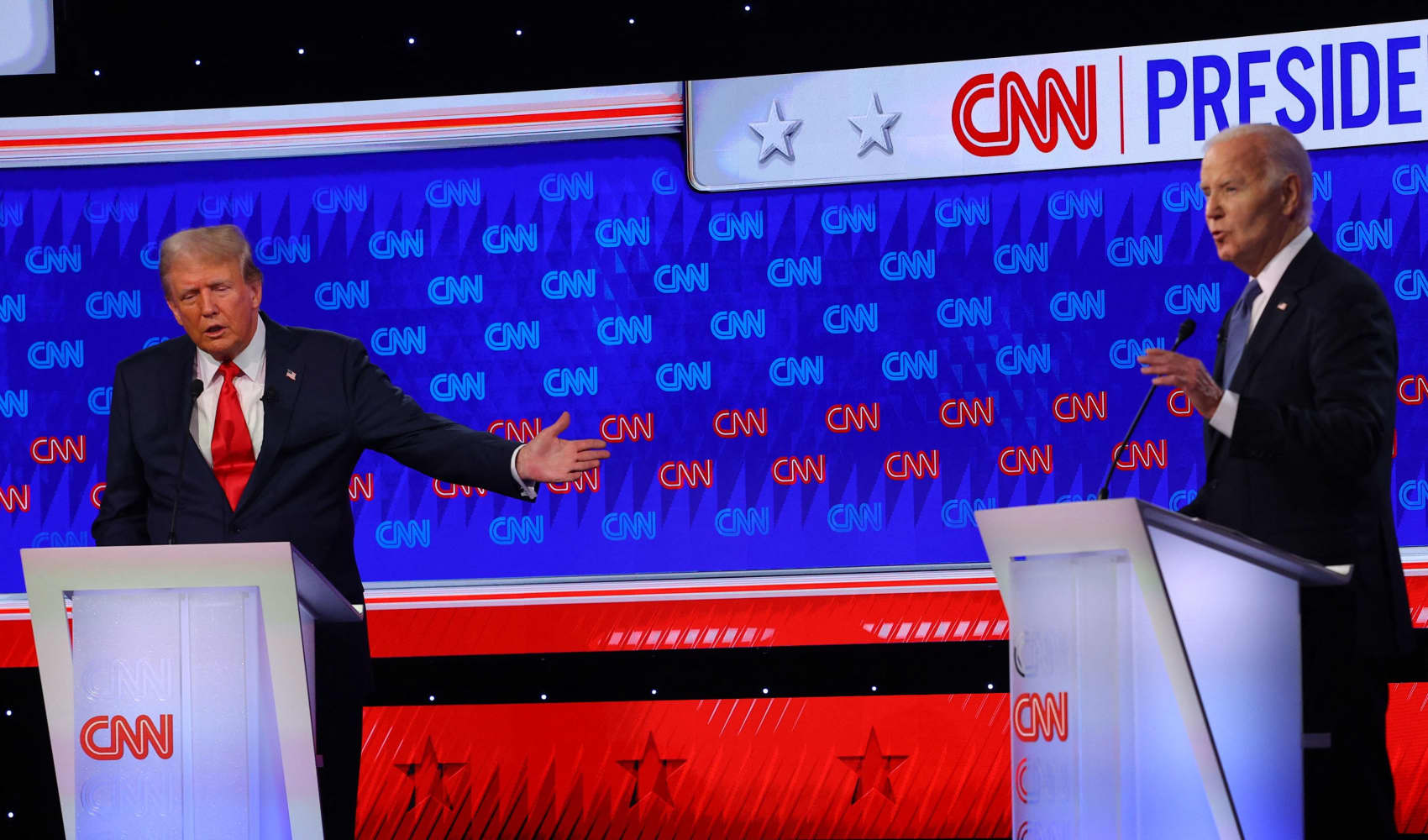
In my career, I've spent the last 12 years studying how the most successful, effective, and influential people speak.
Today, as the CEO of Quantified, I use software to help companies better communicate and connect with their customers and audiences. But I started my career on Wall Street, running quantitative analyses.
I worked with piles of data to help make billion-dollar deals happen. Over time, I noticed that there was a missing factor in our models that could make or break these deals: effective communication. The concept seemed simple—if leaders could effectively communicate their vision, the transactions got done. But we didn't have data on how they did that.
As a numbers guy, this puzzled me, so I began working on a way to better understand it.
The Hurricane season is on. Our meteorologists are ready. Sign up for the NBC 6 Weather newsletter to get the latest forecast in your inbox.
DON'T MISS: The ultimate guide to becoming a master communicator and public speaker
A few years ago, out of curiosity, I ran an analysis on a sample of 200 videos of the world's top visionaries, from Franklin Delano Roosevelt and Martin Luther King Jr to the Wright Brothers and Amelia Earhart. My criteria included TED Talks on innovation, famous speeches from global thought leaders, and rankings of the world's top visionaries. Then we compared them to videos of 250,000 professionals.
Here are three communication strategies the most visionary leaders use.
Money Report
They speak in the present tense
When this project began, my team and I thought that visionaries would paint vivid pictures of a future world when they spoke, but they are actually far more focused on the present.
In our research, we found that these successful leaders use the present tense 15% more and the future tense 14% less than the average communicator. For example, instead of saying, "We will achieve these results," they say, "We are achieving these results now."
Greta Thunberg is a powerful example of this type of in the moment communicator.
In her speech at the World Economic Forum in 2019, she addressed the climate crisis with a sense of urgency and resonance, saying "I don't want you to be hopeful. I want you to panic. I want you to feel the fear I feel every day. And then I want you to act."
They use clear and simple language
When visionaries speak, they aren't overly complex or theoretical. They use fewer syllables per word, fewer words per sentence and clear cause-and-effect language.
A typical communicator might say, "Over the next three quarters, through cost-cutting efficiencies and improved synergies, we will improve our results by approximately 10 to 15%."
A visionary would simplify that and make it more concrete, saying, "Over the next three quarters, through three methods, we will improve our results by 12.5%."
Sheryl Sandberg is very skilled at this. One of my favorite phrases of hers comes from her book "Lean In," where she writes, "Done is the enemy of perfect." We found that she communicates 85% more clearly than the average CEO, making her one of the most effective communicators we've ever measured.
Another visionary example I love comes from Nelson Mandela, who famously said "education is the most powerful weapon which you can use to change the world." It's straightforward and impactful and doesn't attempt to overexplain, prove or justify.
They invite their audience in
Visionaries use a lot of second-person pronouns like "you" and "your", as well as language related to the senses. This makes their communication immediate and immersive.
A great example of this is when Richard Branson spoke about space tourism and travel in a 2014 NPR interview.
He said, "When the rocket stops, you will be in space. There will be complete silence. You will unbuckle and float around as you gently lift up and hit the roof." Branson brings you into the spacecraft with him, making the experience feel real and immediate.
So, what do we learn from all this? Our data shows that once you have a clear vision, the hard work has just begun. You need to communicate it in a way that focuses on the present, uses clear and simple language, and brings your audience into the vision. If you do that, you can inspire anyone.
Noah Zandan is the CEO and co-founder of AI-coaching platform Quantified, and the author of "Insights into Influence." He regularly lectures at The University of Texas, Harvard Business School, Northwestern, UPenn and Stanford. Previously, Noah specialized in quantitative analysis on Wall Street for Lehman Brothers, Deutsche Bank and Brentwood Associates. He has an Economics degree from Dartmouth College and an MBA from Northwestern University's Kellogg School of Management. Noah is also the founder and executive director of the Rockaway Foundation, a non-profit supporting education in underserved areas of Latin America. He's a native of Austin, TX where he lives with his wife and three kids.
Want to be a successful, confident communicator? Take CNBC's new online course Become an Effective Communicator: Master Public Speaking. We'll teach you how to speak clearly and confidently, calm your nerves, what to say and not say, and body language techniques to make a great first impression. Sign up today and use code EARLYBIRD for an introductory discount of 30% off through July 10, 2024.






